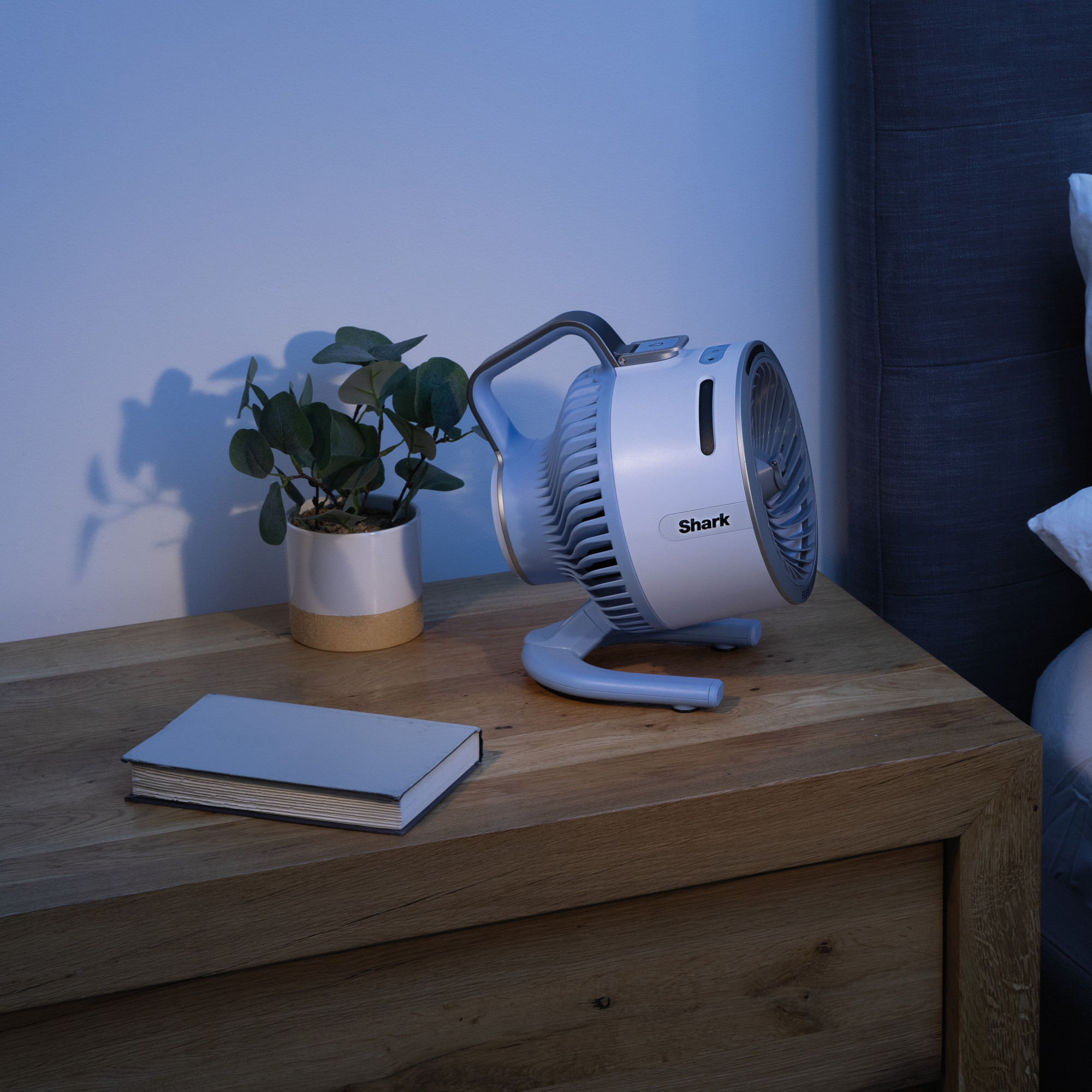
As temperatures begin to soar, getting your hands on a cooling appliance of any description is a tried and tested solution for beating the heat this summer. And if you're pondering whether to invest in a top-quality fan vs an air conditioner, we're here to help.
Although air conditioning is the standard in other parts of the world, this is unfortunately not the case in the UK. However, as summers keep getting hotter, many of us find that even the best fans just don't cut it anymore. Instead, we're favouring the use of the best portable air conditioners to combat the heat.
Of course, whichever of the two you prefer will vary greatly from person to person. Similar to tossing up air conditioners vs coolers, there are a handful of factors to consider, including cooling power, affordability, and running costs. I weigh up the pros and cons of each, with the help of air quality experts, so you can decide which one you should invest in.
Affordable, lightweight, compact, energy-efficient and easy to use, there is a lot to love about the MeacoCool MS Series. We tested the smallest 7000 BTU model, but there are also 8000, 9000, 10000, 12000, and 14000 BTU options for every room size imaginable.
Powerful, quiet, energy-efficient, and easy to use, the MeacoFan 1056 Air Circulator requires no self-assembly and is compact and portable, making it our top choice for the best fan you can buy right now.
Fan vs air conditioner: which one should you choose?
It's probably safe to assume you've already got a fan lying around (albeit a pretty old one), so chances are you're either looking to upgrade to a more powerful model (because believe us, some modern fans are pretty fancy) or switch sides completely and go for a portable AC unit.
Below, we've compiled all the must-knows of both fans and air conditioners to help you decide which is the right option for cooling your home and keeping a bedroom cool this summer.
How does a fan work?
The biggest thing to know about a fan is that its main purpose is to move the air within a room and keep it circulating. Although it doesn't cool a room in any way, the breeze from a fan will cool your skin and can relieve you from hot and humid conditions.
And what's the difference between tower fans and pedestal fans? Well, a tower fan is a slim, vertical unit that pulls air through its base and pushes it out in a steady stream across a wider area, making it ideal for a larger room. While a pedestal fan uses large rotating blades to create a more concentrated breeze that can be directed exactly where you need it.
'Classic fans are ideal if you just can't escape the heat. They can help you stay cool whether you're struggling to sleep at night or want something to keep you cool throughout the day,' explains Joshua Warren, AO.com's air treatment expert. So, in short, it's more about cooling the person rather than the room.

However, since fans can only circulate the air already present in a space, if it is particularly hot and humid, it can often feel like a fan isn't doing anything at all and just blowing hot air around. When you're all out of options, it's better than nothing, but it certainly can be frustrating, especially if you just want to sleep comfortably on a hot summer night.
'A fan circulates air around a room and has no cooling capacity, so if temperature control is what you're looking for, I would opt for air conditioning,' says Oliver O'Hare, air conditioning expert at HiiLIFE.
How does an air conditioner work?
Unlike a fan, air conditioners work to actively lower the temperature in a room rather than just cooling the person. 'Instead of just circulating cool air, they lower the room temperature by removing heat from the air,' explains Joshua.
This is because hot air is vented out of an open window via an exhaust hose, removing heat from the air completely and instead replacing it with cool air.
As such, Oliver notes that with an air conditioner, you'd have complete climate control within your desired room (or even entire living space). 'For parents with young children, this technology also offers peace of mind knowing children will be comfortable regardless.'
However, it's worth noting that opting for a portable air conditioner would be far more of an investment and commitment because you'd need more space (and an open window to accommodate it).
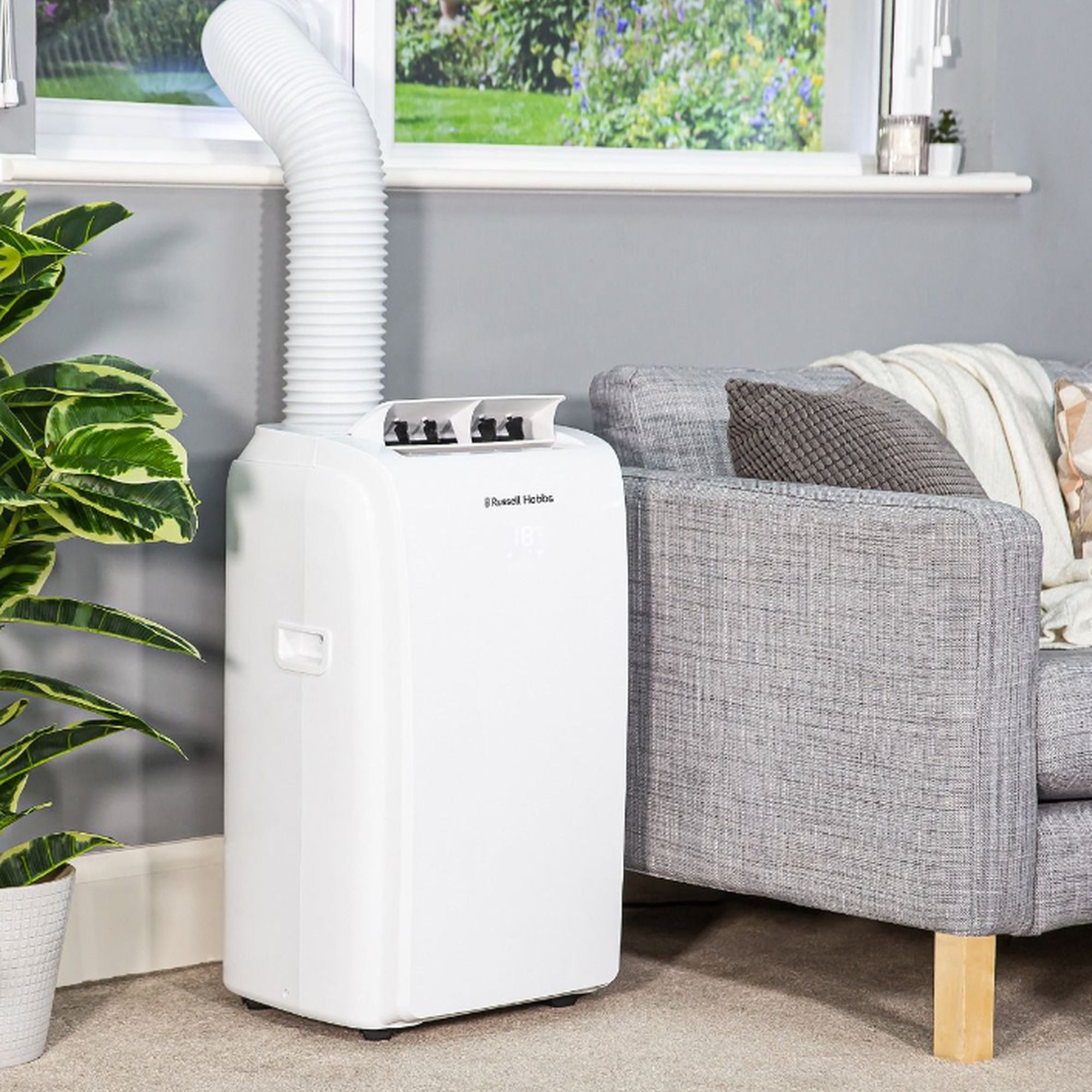
Fan vs air conditioner: cooling power
As we mentioned above, fans cool the person and don't actually do anything to lower the temperature of a room. So, if you're after true cooling power, then going for an air conditioner is your best bet.
Hamid Salimi, residential product manager at Daikin, assures that by installing an air conditioning unit which carefully balances the temperature, heating, humidity levels, and air purity, you can create the most comfortable climate for your home.
However, Matthew Ferris, HVAC expert and founder of Ferris Plumbing, notes that if you have a smaller bedroom that is well-insulated, sticking with a high-quality fan can be pretty effective nonetheless.
Fan vs air conditioner: affordability
Although there are some pretty high-end fans on the market going for a pretty penny (we're looking at you, Dyson fans), for the most part getting your hands on a decent fan is far more accessible and realistic than an air conditioner, which is always going to set you back a couple hundred pounds.
Meanwhile, you can get fans for significantly cheaper to give you even that slight bit of relief. One of the Ideal Home team's heatwave must-haves is actually the John Lewis handheld fan, which will only set you back £12 and works pretty well to keep on your desk or bedside table while you're working or relaxing.
Of course, larger and more powerful fans will set you back more, but they're generally more affordable than an AC unit.
Fan vs air conditioner: running costs
On top of the initial expense of buying the appliance, you'll then need to factor in running costs. As you would imagine, the cost of running an air conditioner is more expensive than the cost of running a fan due to the nature of how each device works to keep you cool.
Following the new April energy price cap, running a portable air conditioner which uses 1000W of electricity would cost you 25p an hour to run. On the other hand, a bladed floor fan using 110W at full speed would cost you less than 3p an hour to run.
As you can see, this is a pretty big jump and adds up with frequent use, especially considering you'll want to keep your cooling appliances running for the majority of the day during particularly hot stints of weather.
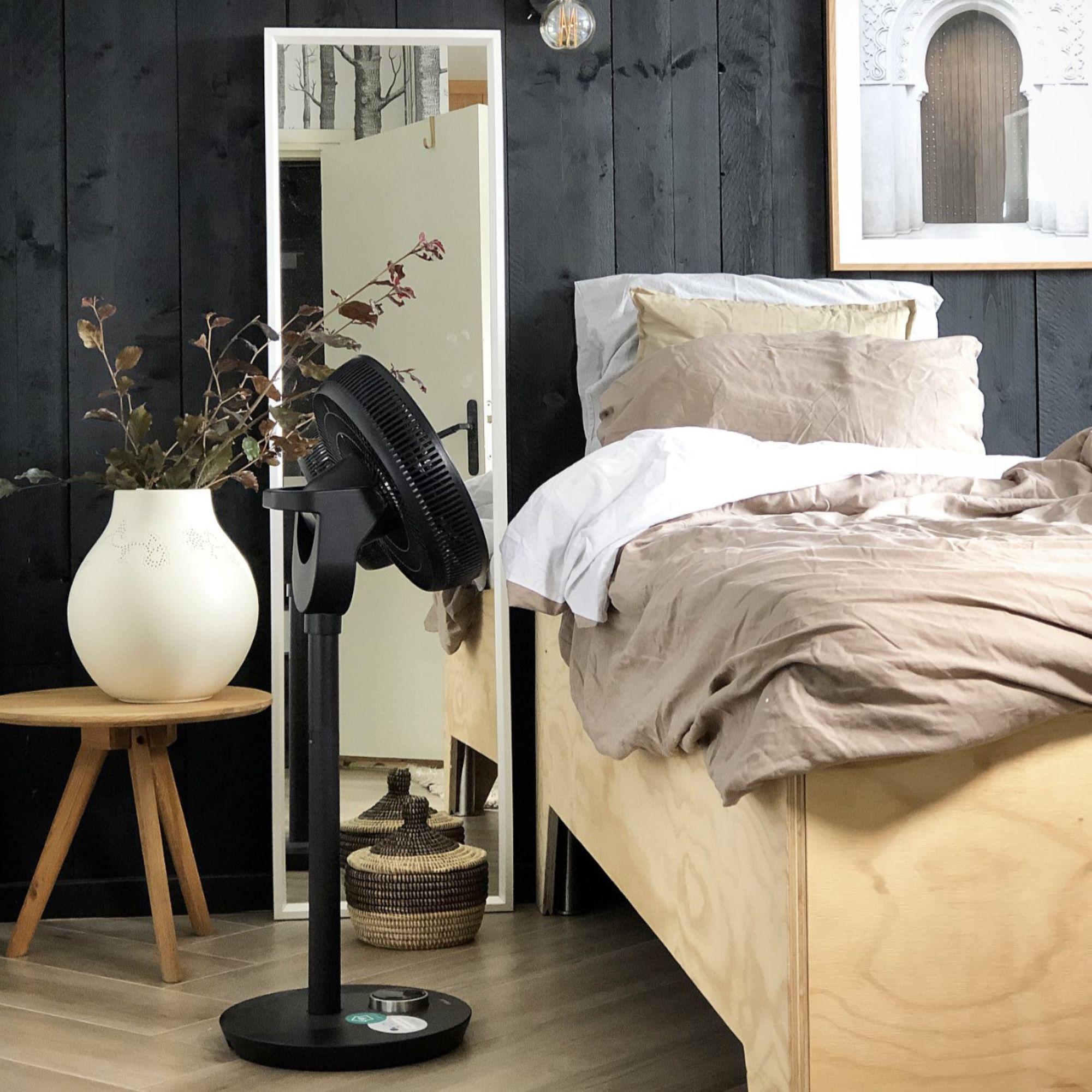
'Fans are a great choice as they use a lot less electricity than running an air conditioning unit, but they do vary in size, impact and wattage, and they may only work efficiently if you position them in the right place,' says Becky Lane, energy efficiency and CEO of Furbnow.
That said, while there are also ways to keep running costs down for cooling appliances, such as placing a portable air conditioner in the correct location, opting for a fan will still cost you far less. So, if one of your main concerns in keeping cool this summer is how much it'll cost you, opting for a fan is your absolute best bet for saving energy at home.
Fan vs air conditioner: portability
Although many of us dream of air conditioning during heat waves, the reality is that it's not just affordability holding us back, but also a lack of space in our homes.
'Fans are often more practical for smaller rooms, while air conditioners provide more effective cooling for larger areas,' explains Joshua. As such, if you have a small bedroom, then a slim fan will likely be your most favourable option.
Unlike fans (tower fans especially), which are often lighter and slimmer in design to be easily slotted in corners of your home, AC units – even portable ones – are far heftier than a standard household fan.
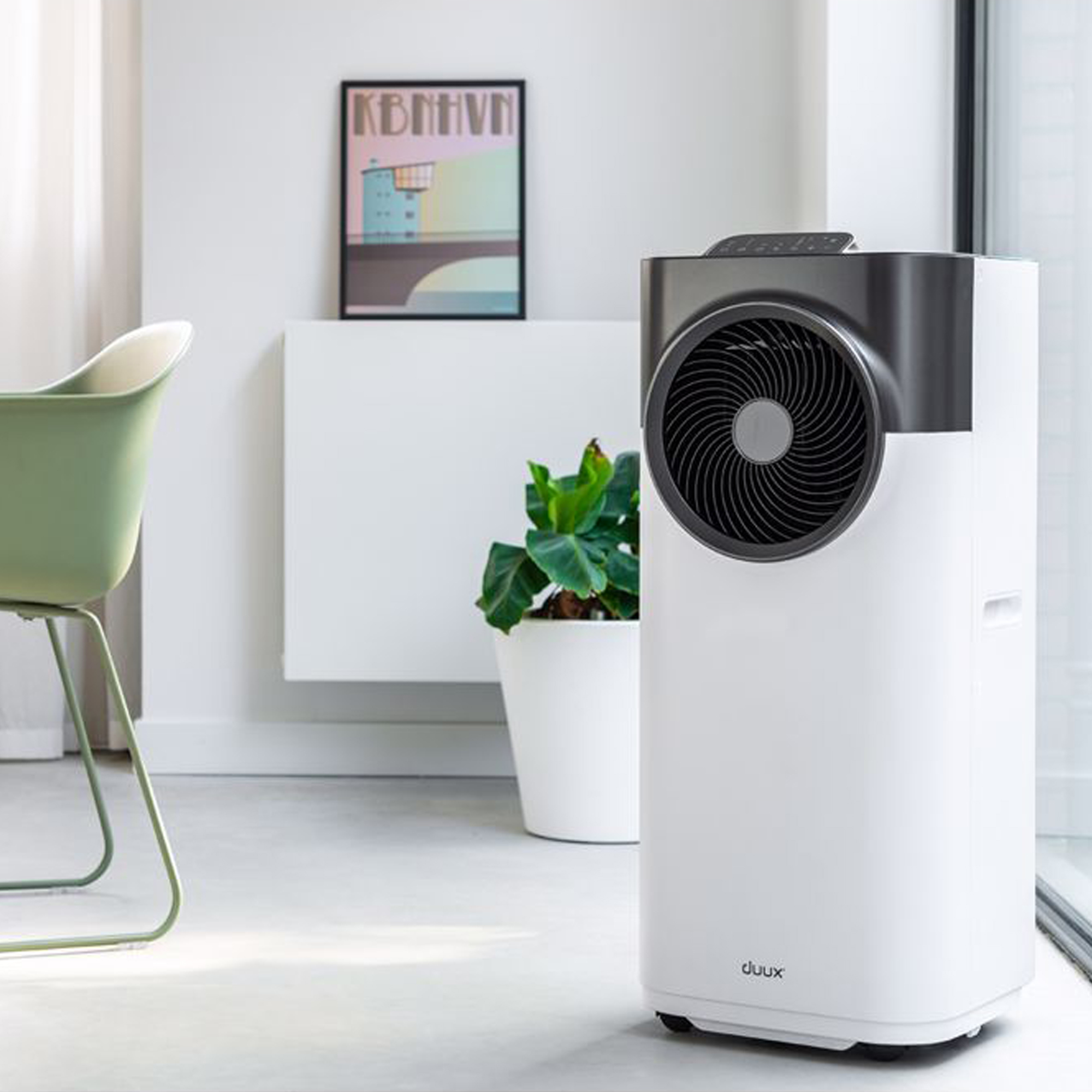
Not to mention, for a portable air conditioner to work optimally, it must be vented through a window. This will ultimately limit where you can place it in a room, as you've got to ensure that you're close to a window and the exhaust hose is long enough to account for it.
Since it's also recommended to fully seal the window from which an AC unit is being vented, we don't imagine you'll want to continually keep moving the unit and resealing your windows through the process.
Therefore, if portability is a concern and you're looking to bring your appliance from room to room, a fan is the most suitable option.
Fan vs air conditioner: noise levels
Often during a heatwave, the biggest issue that arises is feeling cool and comfortable enough to get a good night's sleep and get as close to the ideal bedroom temperature as possible.
Just as considering noise levels when looking into the best air purifier or best dehumidifier for your bedroom is super important, it'll also pay to be aware of the noise levels between a fan and air conditioner to see which is the best option for an undisturbed slumber.
Among the fans we've tested, the Duux Whisper Flex Ultimate Fan really lives up to its name of being the quietest fan we've tested, coming in at just 13-50dB. Compared to our top-rated portable air conditioner, the MeacoCool MC Series Portable Air Conditioner, which measures in at 51-53dB, it is quite the jump.
However, rest assured that from our experience, this quiet buzz that comes with many household appliances has never proven itself to be a dealbreaker (even for our team of reviewers who are lighter sleepers).
Shop the best fans
The Honeywell Turbo Force Power Fan is one of the cheapest fans out there, which is no doubt why it's one of Amazon's bestselling fans and a heatwave must-have. It's basic and noisier than we'd like, but that price tag is hard to beat.
The Dreo PolyFan 508S is super energy-efficient, using just 3 W in Night mode and up to 24 W at full power and costing around 0.1p to 0.9p per hour on April 2025 UK rates. Its Auto and Eco modes help save even more by adjusting the fan speed as the room cools.
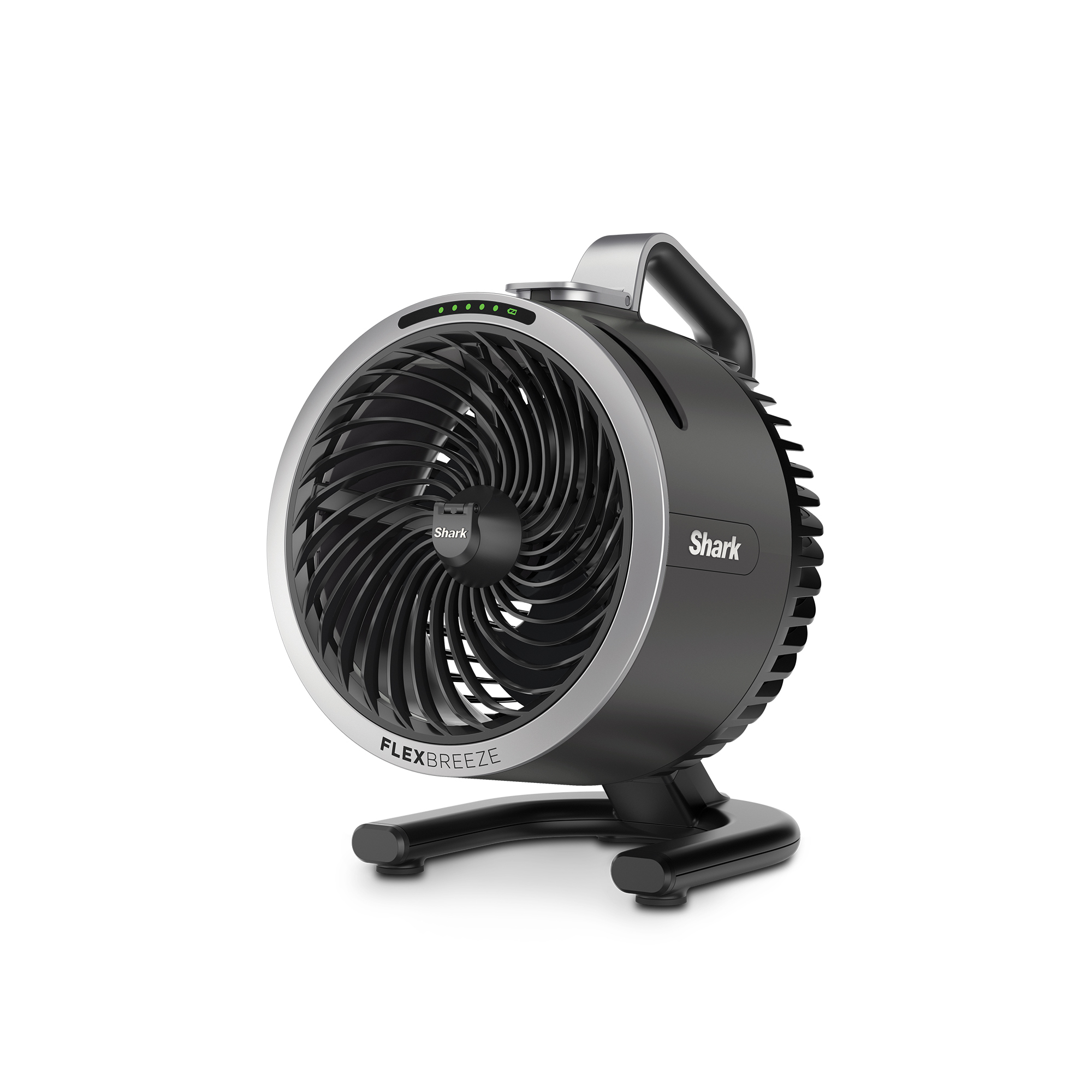
The Flex Breeze HydroGo is a winner for indoor and outdoor use. It's small enough that you can take it with you on the go and powerful enough to cool you down with its refreshing misting function.
Shop the best air conditioners
This 4-in-1 Devola Air Conditioner is powerful, efficient, and a great cooling solution for creating a comfortable atmosphere in any space. Featuring fan, ventilation and dehumidifying functions for circulating air and extracting excess moisture from the air, it is a fantastic AC unit option.
This 3-in-1 air conditioning unit offers cooling solutions for beating a heatwave, its dehumidifying function to combat humid conditions, and the fan used at your leisure to circulate air for everyday comfort. With Wi-Fi and voice command capabilities, it's super easy to use.
AEG's powerful 3400W portable air conditioner not only looks good but is easy to use, relatively quiet in comparison to most, has WiFi connectivity, and can cool down a room fast.
The verdict
If your main reason for looking into the great fan vs air conditioner debate is to figure out which appliance is the best and most effective choice for beating the heat, then we'd objectively have to crown an air conditioner as the winner.
Seeing as an air conditioner is the only option out of the two that actually cools and lowers the temperature of the room, it will be your best choice for ensuring comfort inside your home this summer.
However, if the other factors we discussed, such as affordability, running costs, portability, and noise levels, are just as important, then the answer to this toss-up may differ completely.
For example, if you live in a smaller home with limited floor space, are a very light sleeper, and are particularly conscious of your energy bill outgoings, then purchasing a fan will be the most suitable route to go down.
Therefore, to ultimately decide which cooling device is the right option for your home, you'll have to consider which of these factors is the most important to you and your household. But, rest assured that whichever appliance you opt for is better than simply withstanding the heat without any help, so you're already one step closer to emerging victorious from the hot summer heat.

.jpg?w=600)





